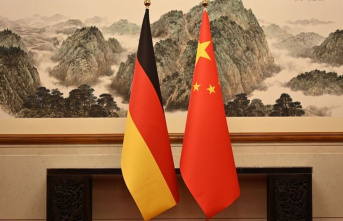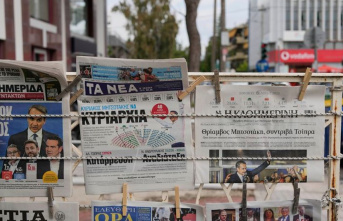Keir Starmer has used the Ukraine crisis to fight his left-wing rivals cynically. Denouncing antiwar activists by the Labour leader will only reinforce McCarthyite attitudes towards dissent and increase the likelihood of new disasters such as Iraq and Afghanistan. All European politicians must do everything they can to ease tensions and prevent war. The British political class seems to believe self-aggrandizement is the norm. Boris Johnson and Liz Truss, his foreign minister, saw the crisis primarily as a platform for ineffectual posturing along the English Channel. However, Keir Sternmer, the opposition leader, has taken advantage of the opportunity to start a fight on the domestic front.
Starmer's praise for NATO is primarily directed at his left-wing opponents, Jeremy Corbyn, his predecessor and the wider antiwar movement. Starmer's polemic won't have much impact on the international scene. However, it will help to reinforce the suffocating consensus surrounding British foreign policy which has resulted in repeated disasters over two decades.
The Two Ns
The Guardian article starts with the following claim.
One of the greatest achievements of the 1945 Labour government is undoubtedly the creation NATO. Although the NHS is perhaps the most significant in our lives, it was NATO's creation that brought about what is now almost three quarters of a century peace between Europe's nations.
Starmer's final sentence conflates a military alliance and a system for public health care returns. Starmer says that "both the Ns -- Nato, and the NHS -- are legacies that transformed Labour government that we should be proud of and protect."
Starmer describes NATO as an "unprecedented coalition of democracies", drafted by Ernest Bevin, Clement Attlee’s foreign secretary, and "the representatives from the other free nations" and cites Bevin's description as the pact "a consecration to peace and resistance to aggressive force" and identifies "Bevinite Internationalism" as his keystone foreign policy.
Unfortunately, some British malcontents are unable to appreciate this amazing creation.
While some on the left might sympathize with those who call for NATO to be dissolved, others may not. To condemn Nato is to deny the security and guarantee it provides democracy. . . . Stop the War Coalition and its members are not peaceful voices for peace. They are at best naive, and at worst they give support to authoritarian leaders who directly threaten democracy.
Starmer claims that those who oppose British foreign policy are "virtue signalslers", guilty of "naivety" and weakness, who "provide a smokescreen for Vladimir Putin's government."
"The Bloody Union Jack."
Let's start with the historical background. Starmer's "unprecedented coalition of democracies" includes the Portuguese fascist regime led by Antonio Salazar. This regime is believed to be a "free nation". NATO embraced Greece and Turkey in 1952 and both countries remained members in good standing during the Cold War under their respective military dictatorships.
Starmer claims that those who oppose British foreign policy are 'virtue signalslers' and guilty of 'naivety' and 'weakness'.
"Bevinite Internationalism" was always a decoy euphemism of Labour-era imperialism. Ernest Bevin was a cabinet colleague who observed that he was an "old-fashioned imperialist" who wanted to expand the Empire more than contract it. When Clement Attlee suggested pulling out British troops from the Middle East Clement Bevin threatened to resign along with the country’s highest military officials.
Under Bevin's leadership, the British armed force helped to restore French colonial control in Vietnam, Laos and Cambodia. He was determined to protect Britain's imperial possessions. India was the only territory that gained independence in the late 1940s. Repressing its people would have cost too much.
Bevin's argument that Britain should develop nuclear weapons was based on national prestige, rather than national security. He wanted to convince James F. Byrnes (the secretary of state for Harry Truman) that Britain was still a major force.
This is what we need. . . . While I understand the situation, I do not want any Foreign Secretary to be discussed with or visited by a Secretary in the United States. This thing must be done here, no matter what the cost. . . . It must have the Union Jack flying above it.
Starmer's assertion that "Bevinite Internationalism" was primarily concerned with defense of "free countries" against Soviet aggression is absurd. The excellent book The Labour Party Since 1945 by Eric Shaw, published just before Tony Blair became prime Minister, offers a more realistic perspective.
Critics on the left denied that the USSR was intent on world conquest. This is despite the fact that Russia's crippling losses during World War II, which were far greater than those suffered by its main adversary, the United States of America, made it completely incapable of making such a move. Labour's determination to uphold Britain's position as a global power over fear of Soviet expansionism was the decisive factor.
Shaw might have stated that this thesis is "not one that's now given much credence by serious scholars," as Shaw dismisses the history. However, the version of history that Shaw rejects is still prevalent in political debate and British politicians are able to claim it as the undisputed truth.
Starmer asserts that Ernest Bevin and other NATO founders had learned from the "failures of appeasement" and the "spectre of Munich." . . . Attlee and Bevin saw communism as it was and were ready to resist its aggression. In fact, British politicians have used the specter from Munich repeatedly to justify their wars of aggression, ranging from the AngloFrench-Israeli invasion of Egypt in 1956 to the invasion and occupation of Iraq. These parallels are often misleading and tendentious. They give as false an impression as possible of Britain's 1930s policy towards Adolf Hitler, which was more a result of cynicism than naivete.
"Bevinite Internationalism" has been used as a decoy euphemism to refer to imperialism within Labour circles.
Starmer's article completely neglects the rest of the world, which was where the Cold War really took place. The United States and its NATO allies waged war against revolutionary movements and reformist governments in Africa, Asia and Latin America. They intervened directly in some cases; others they used local allies.
The self-described leaders of the Free World supported the worst tyrants in history, and accumulated a large body count. Starmer portrays the Cold War solely as a European affair. It pitted democracy against dictatorships in an equitable struggle that the good guys won. This familiar tactic erases the embarrassing record of NATO's powers in the Global South.
The New McCarthyism
Starmer's half-baked history lesson serves as justification for his current political stance. He wants to create an ocean of blue water between his leadership, and Jeremy Corbyn. Labour's foreign policy approach between 2015 and 2019 has been surrounded by a complex mythology that makes it difficult to have serious discussions. This is, however, the intention.
First, Corbyn made significant compromises with Labour. The 2019 Labour manifesto promised that Labour would "maintain NATO's commitment" and retain Britain's nuclear arsenals. Corbyn's second statement, which was a unique one that no of his predecessors would have considered, did not do any harm to his prospects.
This was most evident in the aftermath of the Manchester bombing, which occurred during the 2017 election campaign. It was the most emotional moment one could imagine for a criticism of British Middle East policy. Commentators expected that Corbyn’s speech would provoke a furious backlash from the public. An opinion survey revealed that the majority of people surveyed agreed with Corbyn's sensible and well-documented analysis on terrorism and its causes.
Many pundits believe that Corbyn’s response to the Salisbury poisoning scandal in 2018 was electoral poison for Labour Party -- possibly even the main reason for its defeat in 2019. However, YouGov's detailed research at the beginning of 2019 found no evidence to support this. It was midway between the Salisbury attack in 2018 and the 2019 general elections. The most significant reason for negative perceptions of Corbyn was the protracted row over Labour’s Brexit policy: "His positions regarding defence were only mentioned by 1% of respondents, while nobody mentioned his response on the Salisbury poisoning."
There has been much mythmaking about the content of Corbyn’s response. Starmer's article in The Guardian claims that Starmer "declined" to attribute responsibility for the Moscow attacks. This is exactly what Corbyn said at the time in the Guardian.
Theresa May was correct Monday to identify two possible sources of the attack on Salisbury. The nerve agent used in the attack has been identified by Russia. Either the Russian state authored this crime; or the state allowed the deadly toxins to escape the control it is required to exercise. It is possible to link the British mafia-like organizations to Russian criminal gangs that were allowed to establish a foothold in Britain, but this cannot be ruled out.
This was a very sensible position. Corbyn continued, "In my years as a member of Parliament, I have seen clear thinking in international crises overwhelmed by emotion, hasty judgements too many times." In both cases, Moscow would have been directly or indirectly responsible. Although it may not have been a satisfying utterance for those who judge the worth of a word primarily by its decibel level, those are exactly the people who should be avoided in matters of war or peace.
The Labour leader was clear about his views on Vladimir Putin's government.
Labour is not a supporter of Putin's conservative authoritarianism and abuse of human rights, nor its political or economic corruption. We also pay tribute to Russia's many campaigners in support of social justice and human right, including LGBT rights. We should not accept a "new Cold War" that will see escalating arms expenditure, proxy conflicts around the world, and McCarthyite intolerance for dissent.
The truth is that Corbyn's critics within the Parliamentary Labour Party had no problem with Putin's conservative authoritarianism and his abuse of human right's. They would have been more concerned about these things if they had not reacted in rebellion when they were asked to vote against the Saudi invasion of Yemen.
British politicians have used the specter Munich repeatedly to justify their wars of aggression.
With the mass killing of Chechen civilians, the Russian leader's invasion in Chechnya was his most serious crime since taking office. Tony Blair supported the invasion with his full support, as he was not treading on any geopolitical toes within the West.
Motes and Beams
Keir Starmer was using Ukraine to bolster his hawkish rhetoric, while a more serious politician tried to put out the flames. Bernie Sanders also wrote for the Guardian and claimed that Russia was the "most responsible" for the crisis. Figures such as Starmer seem content to let it go. Sanders on the other hand recognized that citizens who live in NATO members states have a responsibility for looking at the beams in the eyes of their country.
After the collapse of the Soviet Union in 1991, Ukraine gained independence. Russian leaders expressed concern about former Soviet states joining NATO and putting hostile military forces on Russia's borders. These concerns were recognized by the US leadership at that time as valid. These are valid concerns. The solution is not invasion by Russia; nor is the solution to NATO's intransigence. . . .
Putin might be a liar, a demagogue and a fraud. But it is hypocritical of the United States not to accept the principle "spheres of Influence." . .
. . . Even if Russia were not led by corrupt, authoritarian leaders like Vladimir Putin it would still be interested in the security policies and decisions of its neighbours. Is it really possible to believe that the United States wouldn't have something to say about Mexico forming a military alliance?
Starmer might view Starmer as another "virtue signer" who is "showing solidarity to the aggressor." Others may see him more as a mature adult who recognizes that defusing tensions is better than using them as exotic backdrops against which to strike a pose.











